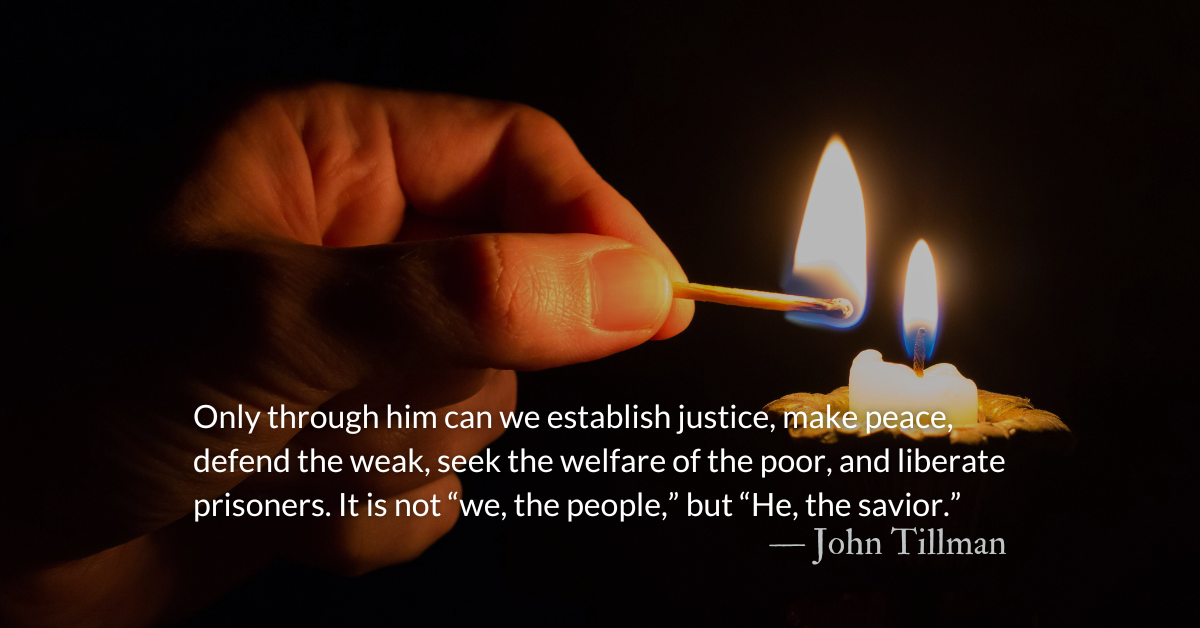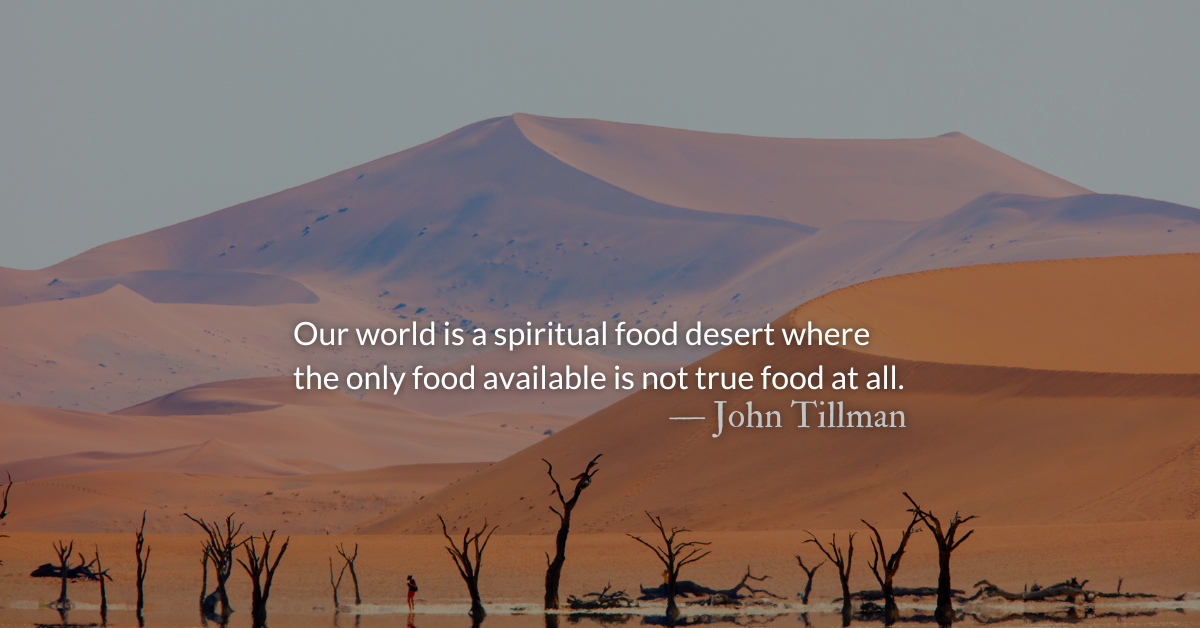Scripture Focus: Psalm 72.12-14
12 For he will deliver the needy who cry out,
the afflicted who have no one to help.
13 He will take pity on the weak and the needy
and save the needy from death.
14 He will rescue them from oppression and violence,
for precious is their blood in his sight.
Reflection: We, Your People
By John Tillman
The true king that the psalmist references is not Solomon or any political realm to follow. Jesus is the true king who liberates and brings justice.
The golden age Solomon ushered in rode on the back of immense taxes and slave labor. Solomon’s political alliances were sealed with unholy marriages and consecrated by temples built to idols. What looked like paradise was paid for by hellish means.
Jesus, by contrast, took the weight of hell on his back and set us free from its burden. Now, Jesus calls us to be part of the glorious kingdom he’s building. The true son makes us true heirs. Only through him can we establish justice, make peace, defend the weak, seek the welfare of the poor, and liberate prisoners. It is not “we, the people,” but “He, the savior.”
Let this prayer, based on Psalm 72, constitute a confession and request that Christ will make us true heirs and ambassadors of his righteousness.
Prayer of We, Your People
We, your people, Lord, acknowledge that justice deserving the name does not come from us. Our best work will be partial and incomplete…
Endow us with your justice, O God… (v 1)
Help us defend the afflicted, save the children of the needy, and crush oppression in all its forms. (v 4)
We claim your promise to us through Eve that her seed would crush evil. (Genesis 3:15)
We give our lives and bodies as Mary did. Use us to bring down wicked rulers, lift the humble, and fill the needs of the hungry. (Luke 1.52-53)
We confess we have been deaf. Give us ears to hear the needy.
We confess we have been cowardly. Give us strength to help the afflicted.
We confess we have been hard-hearted. Give us compassion for the weak and empathy with those under oppression and violence, for precious is their blood in your sight. (v 12-14)
May we work in the name of Christ our King. Anoint us with your Spirit to proclaim good news to the poor, to bind up the brokenhearted, to proclaim freedom for the captives, and to release prisoners from darkness. (Isaiah 61.1-2)
Where earthly governments join these tasks, may we walk with them. But never let us rely on earthly kings to carry out the tasks of the heavenly kingdom.
Praise be to his glorious name forever;
may the whole earth be filled with his glory.
Amen and Amen. (v 19)
Divine Hours Prayer: The Refrain for the Morning Lessons
“Because the needy are oppressed, and the poor cry out in misery, I will rise up,” says the Lord, “ And give them the help they long for.” — Psalm 12.5
– From The Divine Hours: Prayers for Summertime by Phyllis Tickle.
Today’s Readings
2 Kings 19 (Listen 6:11)
Psalms 72 (Listen 2:21)
Read more about Calling the Kettle
David knew better than most that human leaders, especially himself, were incapable of bringing the kind of justice he wrote of.
Read more about Supporting Our Work
Please consider becoming a donor. Support ad-free content that brings biblical devotionals to inboxes across the world.











